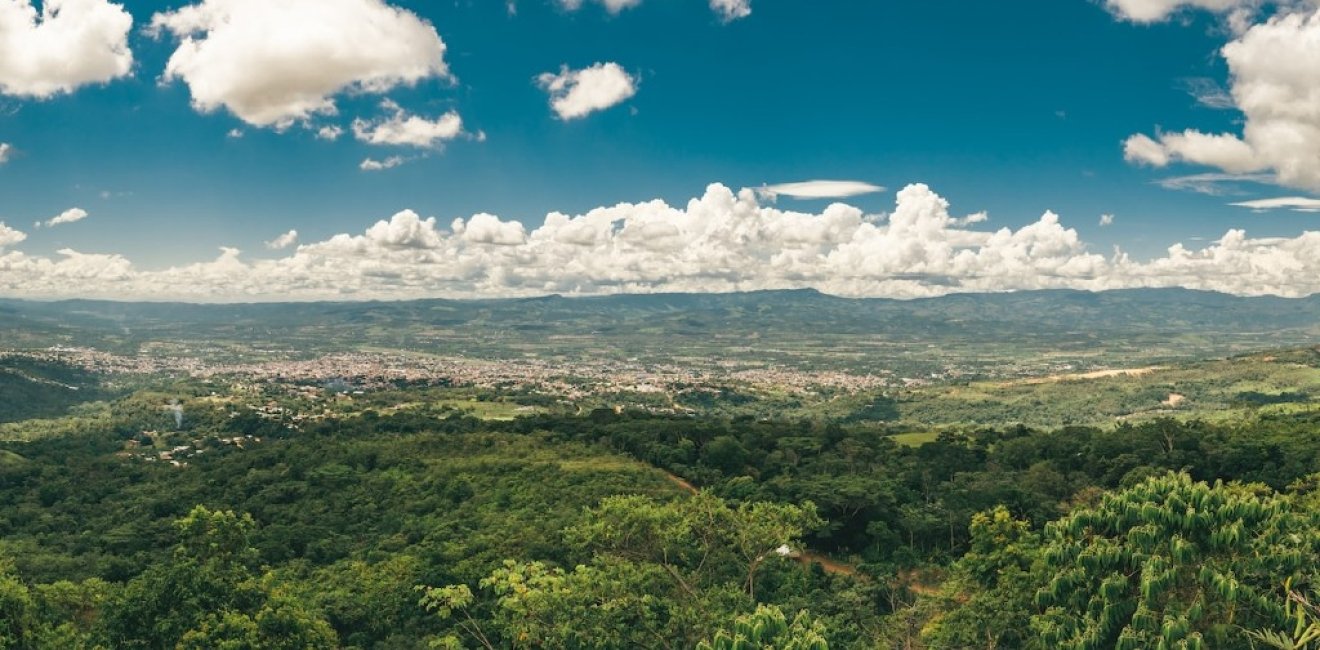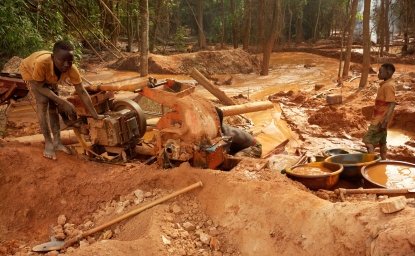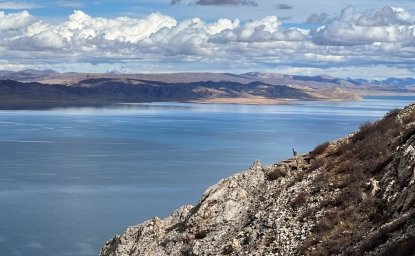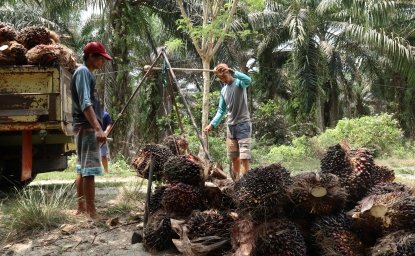The Return of the Amazon Fund and Lula's Race to Cut Deforestation
After a bemusing suspension under Bolsonaro, Lula has brought back the Amazon Fund and is keen on gathering new donations in the government's quest to slash deforestation figures
After a bemusing suspension under Bolsonaro, Lula has brought back the Amazon Fund and is keen on gathering new donations in the government's quest to slash deforestation figures

On the first day of his third term as Brazil's president, Luiz Inácio Lula da Silva signed a decree reactivating the Amazon Fund. Reviving the project — which was inexplicably suspended during the government of far-right former President Jair Bolsonaro — was one of Lula's campaign promises, going in line with his pledge to reach zero deforestation by 2030.
The fund currently has a balance of BRL 3.3 billion (USD 630 million), to be spent on "efforts to prevent, monitor, and combat deforestation, as well as to promote the preservation and sustainable use of the Brazilian Amazon,” as is stated on the project's official website.
The fund is mainly sponsored by Norway and Germany and managed by Brazil’s National Development Bank (BNDES), which is responsible for raising and investing funds, monitoring the sponsored projects, and providing accountability.
Speaking at the World Economic Forum in Davos, Environment Minister Marina Silva singled out the Amazon Fund as "the priority" for the government in its search for financial resources to fund protection measures.
Over the last five years, even with the Amazon Fund suspended, it financed part of the oversight activities of Brazil's environmental protection agency Ibama. A contract signed in 2018, before Mr. Bolsonaro took office, foresaw a total of BRL 140 million to be transferred to the government agency, largely used to lease special vehicles used in oversight operations, such as helicopters. The project was not renewed during Mr. Bolsonaro's time in office.
Indeed, of the BRL 219.4 million budget that the Bolsonaro government had available to spend on oversight operations between 2019 and 2021, it had used just over 40 percent, according to data from climate watchdog Observatório do Clima.
With the new government in charge, there has been some clamor to make use of this unfrozen Amazon Fund cash to pay for the Environment Ministry's protection and oversight apparatus.
Earlier this month, Minister Silva acknowledged this potentially unorthodox use of funds, but underlined its importance.
"Money [from the Amazon Fund] wasn't intended to be used for actions that are the obligation of the state, right? The Fund is more to do with research, with support for community and corporate projects," she explained during an interview.
"Now, it will have to be used in an emergency manner because of this environmental 'blackout' [left by the Bolsonaro government]."
While not strictly part of the Fund's initial concept, the use of resources becomes more advantageous still due to recent legislative changes that exclude international donations from the government's public spending cap.
As such, the money can be used to beef up the budgets of Ibama and the Chico Mendes Institute for Biodiversity Conservation (ICMBio), without having to trim spending in other equally crucial areas.
But this use of funds isn't as straightforward as it sounds, explains Márcio Santilli, founding partner of non-profit Instituto Socioambiental. "I don't see it as being a problem, but it would require the formulation and approval of a project, which takes time."
"I expect the oversight actions will begin immediately, using money from the budget, until new funds can be brought in."
Speaking in Davos, Ms. Silva spoke of Brazil's interest in attracting new donors to the Amazon Fund, which since its creation has relied overwhelmingly on money from Norway, along with comparatively tiny investments from Germany.
The Norwegian government — after falling out with the Environment Ministry under former President Bolsonaro — is now keen on resuming donations, while Germany signed a new pledge shortly after Lula's election win in October of last year.
"We're working on various fronts, seeking to expand beyond Germany and Norway," said Ms. Silva. "We've had lots of discussions."
Some of the most concrete discussions so far have been with the United Kingdom. Britain’s Secretary for Environment, Food, and Rural Affairs, Thérèse Coffey, attended Lula's inauguration ceremony, tacking on a trip to the Amazonian state of Pará while in Brazil.
As stated in a recent interview, Ms. Coffey is "carefully considering the opportunity [of donating] and engaging with current partners in the Amazon Fund."
Another rumored new donor, France, tells The Brazilian Report that "no donation to the Amazon Fund is being negotiated with the Brazilian authorities at the moment." However, the statement from the French Embassy adds that the country "is examining all possible ways to contribute to the fight against deforestation alongside our Brazilian partners."
The Amazon Fund is the world's largest REDD+ project, a snappy United Nations acronym for "reducing emissions from deforestation and forest degradation." As such, the donations are compensatory in nature, i.e., they reward the Brazilian government for achieving deforestation reductions.
Therefore, if the Lula government wants any additional international investment in the Amazon Fund, it must come up with concrete deforestation reductions to back up its pro-environment messaging.
Mr. Santilli, from Instituto Socioambiental, notes that a significant drop in deforestation is unlikely for the government's first year in office.
"The annual rate from the Prodes [satellite system] is measured from August 2022 to July of this year — so that includes six months of the Bolsonaro government," he points out. "And these months have already seen increases in relation to the previous year."
Indeed, data from fellow non-profit Imazon shows that 2022 deforestation in the Amazon was the highest in 15 years, with the equivalent of almost 3,000 football fields of forest cut down every day. "We hope this is the last deforestation record we report," said Imazon researcher Bianca Santos.
However, the concrete impact that a potentially slow start for the Lula government may have on Amazon Fund donations is low, Mr. Santilli tells The Brazilian Report.
"I don't think the fund's donors will assess the new government based on deforestation figures from its first six months," he says. "Lula managed big reductions in previous governments, so I think he'll be awarded some slack."
The environmental policy of the far-right Jair Bolsonaro government was one of disdain for preservation and protection. Throughout the 2018 election campaign, there were indications abound that this would be the case, with the then-candidate calling on the country to make use of the "Amazon's riches" and guaranteeing that his government would not demarcate "a single centimeter of indigenous lands."
Just months into his administration, the anti-protection agenda was unequivocally put into practice with the suspension of the Amazon Fund.
The Environment Ministry issued an ordinance extinguishing a series of boards and commissions, including the steering committee that the Amazon Fund needs in order to operate. The BRL 3.3 billion sitting in the fund's accounts, therefore, was left to stagnate.
Ricardo Salles, Mr. Bolsonaro’s first Environment Minister, was a harsh critic of the Amazon Fund. He suggested the money should be used to compensate landowners who lose land to conservation areas, as well as sponsoring initiatives by private companies. In his understanding, the fund was not friendly enough to the private sector and to fostering economic growth in the Amazon region.
After disagreements with Mr. Salles and the de facto suspension of the fund, Norway decided to withhold any further donations in August 2019.

Like the content? Subscribe to the Brazilian Report using the discount code 100DAYS to get 20 percent off any annual plan.

The Brazil Institute—the only country-specific policy institution focused on Brazil in Washington—aims to deepen understanding of Brazil’s complex landscape and strengthen relations between Brazilian and US institutions across all sectors. Read more


The Wilson Center’s prestigious Latin America Program provides non-partisan expertise to a broad community of decision makers in the United States and Latin America on critical policy issues facing the Hemisphere. The Program provides insightful and actionable research for policymakers, private sector leaders, journalists, and public intellectuals in the United States and Latin America. To bridge the gap between scholarship and policy action, it fosters new inquiry, sponsors high-level public and private meetings among multiple stakeholders, and explores policy options to improve outcomes for citizens throughout the Americas. Drawing on the Wilson Center’s strength as the nation’s key non-partisan policy forum, the Program serves as a trusted source of analysis and a vital point of contact between the worlds of scholarship and action. Read more




